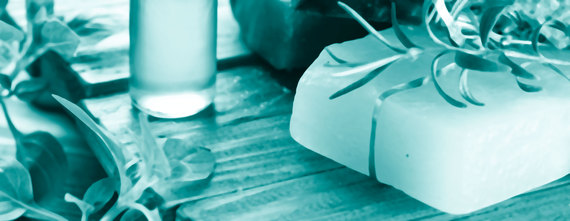Sleep hygiene doesn’t mean you remembered to wash behind your ears or between your toes before you climbed into bed. Nor does it refer to your freshly laundered bed linens/the cleanliness of your bed linens. (For more on that, see "How Often Should I Wash My Sheets?")
The term "sleep hygiene" refers to the healthy sleep habits researchers have identified that, if followed, can make a difference between a restless night or a night of rest. Not to mention feeling refreshed, alert and awake the next day.
Think of these 10 tips as your "best practices" for sleeping.
- Keep a consistent sleep schedule. Going to bed and getting up at the same time every day sets your body’s internal clock so it expects sleep at a certain time every night. Yes, this means seven days a week, including weekends, and as close as possible on vacations.
- Create a restful sleep environment. Quiet and dark, not too hot or cold. Cool is best, between 60 and 75 degrees. Make sure your mattress and pillows are comfy.
- Use your bed for sleep and sex. Not for reading, watching TV, listening to music. Not for texting. This is especially important for those with sleep issues.
- Don’t go to bed if you’re not tired. Struggling to fall asleep leads to frustration. So does staring at the clock. If you’re not snoozing after 20 minutes, get out of bed and go to another room. Do something relaxing — read, listen to music, even take a warm shower — until you find yourself getting drowsy.
- Create a bedtime ritual or routine. Anything you find relaxing an hour or so before bed lets your body know you’re transitioning from awake time to sleep time. Physically or psychologically stressful activities trigger the release of the hormone cortisol, which will keep you alert and agitated.
- Steer clear of alcohol, caffeine, nicotine and other chemicals that interfere with sleep. Caffeine, of course, is a stimulant, so this means avoiding coffee, tea, chocolate, colas and some pain relievers four to six hours before bedtime. And though alcohol may initially make you drowsy, it can interfere with the quality of your sleep during the night.
- Avoid big meals right before bed. A few slices of pepperoni pizza will stimulate your digestive system and probably give you heartburn. Also knock off the fluid intake close to your bedtime so you’re not making too many nighttime trips to the loo.
- Limit your light after dark. Natural sunlight keeps your body clock on a healthy sleep-wake cycle, but exposure to bright artificial light in the evening, especially from electronics, will disrupt it. Bright light, and especially the blue light your laptop throws off, interferes with the release of melatonin, one of your body’s natural cues that it’s time to power down.
- Nap early, if you need one. If you’re able to squeeze in a nap, lucky you. Keep it short and sweet. A good rule of thumb is to time your nap for about seven to eight hours after you wake up. Napping too close to your bedtime can interfere with your sleep drive.
- Don’t work out too close to your bedtime. Exercise is good for everything that ails you. Just not too close to bedtime. Most people need to finish up their physical activity at least three hours before lying down for the night.
Van Winkle’s 11th Commandment: Follow Through
In sports, this means completing an action or process, and it’s pretty much the same thing here. Some of these tips will be easy to adopt, and others may be a challenge. Who doesn’t want to sleep in on weekends? But the more you follow, the better you’ll sleep.
That said, some sleep problems aren’t so easily treated and may indicate a sleep disorder. If your issues become chronic, and don’t improve after some lifestyle changes, it’s a good idea to talk to your doctor or a sleep specialist.
